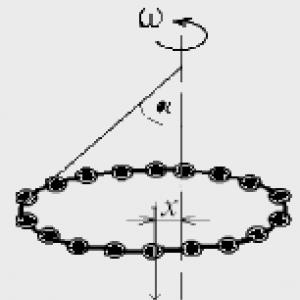David Hume - aphorisms and quotes. Aphorisms and quotes by David Hume David Hume quotes
Aphorisms and quotes by David Hume
David Hume is an 18th century Scottish philosopher, agnostic, empiricist, diplomat, historian. One of the largest figures of the Enlightenment in Scotland. Among the fundamental works of Hume - an 8-volume history of England, treatises "On human nature" and "On the immortality of the soul." Hume's postulate "no evidence of the existence of the world exists" subsequently formed the basis of agnosticism as an independent philosophical position. Below are some of the aphorisms and quotes from David Hume."Self-love ... gives rise to the rules of justice and is the first motive for observing the latter"
"He is happy who lives in conditions corresponding to his temperament, but he is more perfect who knows how to adapt his temperament to any conditions."
"The strictest morality allows us to feel pleasure at the thought of a generous act ..."
"Love is nothing more than the desire for happiness to another person ..."
“The inclination to joy and hope is true happiness; the tendency to fear and melancholy is a real misfortune "
"Gloating ... is an unreasonable desire to inflict harm on another person in order to experience pleasure by comparison with one's own situation."
"Nothing is free as human thought"
"The service rendered to us is pleasant mainly because it flatters our vanity and testifies to the good disposition and respect towards us of the person who provided it"
"By themselves, actions, if they do not flow from some permanent principle ... do not matter for morality."
"When religiosity is combined with a passion for the miraculous, then the end of all common sense, and the testimony of people loses all authority."
"In pity there is always an admixture of love or tenderness, and in gloating there is always an admixture of hatred or anger."
"Happiness usually favors the brave and adventurous, but nothing inspires us more courage than a good opinion of ourselves."
"It is difficult for a person who talks about himself for a long time to avoid vanity."
"It would be useless to punish a person for stupidity or convince him to be wise and discerning, although the same punishments and beliefs can have a significant impact when it comes to justice and injustice."
"We condemn any deception, any violation of the word, because we believe that freedom and breadth of communication between people are completely dependent on faithfulness to promises."
"Nothing can be more commendable than self-esteem when we really have valuable qualities."
"Friendship is a calm and quiet attachment, guided and reinforced by a habit arising from long association and mutual commitment."
"If the only motive for our actions is the desire to show our freedom, then we cannot free ourselves from the bonds of necessity."
"If courage and ambition are not regulated by benevolence, they can only make a tyrant or a robber out of a person."
"Genuine, sincere pride, or self-respect, if only it is well hidden and at the same time really justified, must certainly be characteristic of a man of honor ..."
"A good goal can only convey value to those means that are sufficient and really lead to the goal"
"Affects of love and hate are always accompanied by benevolence and anger ..."
“We have no motives other than a sense of duty to keep our promises. If we thought that promises were not morally bound, we would not feel inclined to keep them. "
"Everything that we call heroic valor and what we admire as greatness and loftiness of spirit is nothing but calm and firmly founded pride and self-respect ..."
“If any act is virtuous or vicious, it is only a sign of a certain spiritual quality or character; it must flow from the constant principles of our spirit, extending to all human behavior and included in his personal character "
In addition to aphorisms and quotes from David Hume, our site contains many sayings and other famous people. To find them, use the alphabet at the top of the page.
Popular articles of the site from the "Dream Interpretation" section
When do prophetic dreams occur?
Clear images from dreams make an indelible impression on a person. If after some time the events in a dream are embodied in reality, then people are convinced that the dream was prophetic. Prophetic dreams, with rare exceptions, have a direct meaning. A prophetic dream is always bright ...
|
Hume David (1711-1776).
Assumption that the future is similar to the past, is not based on any arguments, but stems solely from the habit that forces us to expect in the future the sequence of objects to which we are accustomed.
• Just thinking of a thing and thinking of it as existing is exactly the same thing. The idea of \u200b\u200bexistence, attached to the idea of \u200b\u200bsome object, adds nothing to it. Whatever we imagine, we imagine it as existing.
• Not the destruction of monsters, the overthrow of tyrants and the defense of the homeland, but scourging and fasting, cowardice and humility, complete submission and slavish obedience - this is now the means of achieving divine honors among people.
• No object can perform an action at such a time and in such a place, which are at least somewhat remote from the time and place of its existence.
A special idea becomes general when it is attached to a common name, that is, to a term that, thanks to a familiar connection, is in some relation to many other special ideas and easily conjures them up.
• Religious delusions are dangerous, but philosophical ones are only ridiculous.
Nature itself heals from the philosophy of melancholy.
Fantasy runs all over the world, collecting ideas related to any subject.
It is difficult for a person who talks about himself for a long time to avoid vanity.
• I will not in any way conflict with reason if I prefer that the whole world be destroyed, for me to scratch my finger.
I dare to assert about other people that they are nothing but a bundle or bundle of different perceptions, following each other with incomprehensible speed and being in constant motion.
By claiming that God exists, we simply form the idea of \u200b\u200bthe Divine in accordance with our idea of \u200b\u200bhim and do not represent the existence attributed to him as a separate idea, which we would add to the idea of \u200b\u200bhis other qualities.
The most remarkable quality of human nature is our inherent tendency to sympathize with other people.
• An inclination to joy and hope is true happiness; the tendency to fear and melancholy is a real misfortune.
He is happy who lives in conditions corresponding to his temperament, but he is more perfect who knows how to adapt his temperament to any conditions.
Pleasure and displeasure are not only necessary companions of the beautiful and ugly, but also constitute their very essence.
• Friendship is a calm and quiet affection, guided and reinforced by habit arising from long association and mutual commitment.
From impressions or ideas of memory, we form a kind of system that encompasses everything that we remember as perceived either by internal perception or by external feelings, and each part of this system, along with present impressions, is usually called reality.
• When religiosity is combined with a passion for the miraculous, then the end of all common sense and the testimony of people loses all authority.
Nothing is free as a person's thought.
Imagination reaches a certain minimum, that is, it is able to evoke in itself such an idea, the fragmentation of which is unimaginable, and its reduction is impossible without its complete destruction.
Biography - YUM DAVID (1711-1776)
Hume David, English philosopher, historian, economist and publicist who formulated the principles of modern European agnosticism. Born May 7, 1711 in Edinburgh, in the family of a poor Scottish nobleman. Hume received his law degree from the University of Edinburgh.
In 1739, Hume published his main work, A Treatise on Human Nature, in which he denied in principle the knowability of the world and substantiated the lack of evidence for the existence of causality in the human psyche. However, the fame in his homeland Yuma brought "Essays" (1741) on socio-political, moral, aesthetic and economic topics. Hume's ethics is based on the concept of immutable human nature. From her point of view, a person is a weak creature, prone to errors and whims, for whom education brings not knowledge, but habits, and whose moral assessments stem from his personal sense of pleasure.
In 1753-1762, while serving as librarian at the Edinburgh Law Society, Hume worked on an eight-volume History of England from the Invasion of Julius Caesar to the Revolution of 1688. 1763-1666 spent in Paris on a diplomatic mission, becoming close to French encyclopedists.
After retiring in 1769, he became secretary of the Edinburgh Philosophical Society, which unites scientists and cultural figures of Scotland.
Hume died on August 25, 1776 in Edinburgh.
Under the influence of Hume's ideas, most of the positivist teachings of the 19th and 20th centuries developed, up to empirio-criticism, neopositivism, and linguistic philosophy.
David Hume, (1711-1776), philosopher, historian, economist
Affects of love and hate are always accompanied by benevolence and anger ...
A good end can only convey value to those means that are sufficient and actually lead to the end.
It would be useless to punish a person for stupidity or convince him to be wise and discerning, although the same punishments and beliefs can have a significant impact when it comes to justice and injustice.
In pity there is always an admixture of love or tenderness, and in schadenfreude there is always an admixture of hatred or anger.
Anything we call heroic valor and admire as greatness and loftiness of spirit is nothing more than calm and well-founded pride and self-respect.
Friendship is a calm and quiet attachment, guided and reinforced by habit arising from long association and mutual commitment.
If the only motive for our actions is the desire to show our freedom, then we cannot free ourselves from the bonds of necessity.
If any action is virtuous or vicious, it is only a sign of a certain spiritual quality or character; it must flow from the constant principles of our spirit, which extend to all human behavior and are part of his personal character.
If courage and ambition are not regulated by benevolence, they can only make a tyrant or a robber out of a person.
Gloat. there is an unspoken desire to harm another person in order to experience pleasure by comparison with one's own situation.
When religiosity is combined with a passion for the miraculous, then the end of all common sense, and the testimony of people loses all authority.
Love is nothing more than the desire for happiness for another person.
We condemn any deception, any violation of the word, because we believe that freedom and breadth of communication between people are completely dependent on faithfulness to promises.
... Genuine, sincere pride, or self-respect, if only well hidden and at the same time really justified, certainly should be characteristic of a man of honor.
Nothing can be more commendable than self-esteem when we do have valuable qualities.
Nothing is free as a person's thought.
Happiness usually favors the brave and adventurous, but nothing inspires us more courage than a good opinion of ourselves.
The strictest morality allows us to feel pleasure at the thought of a generous act.
The actions themselves, if they do not flow from some constant principle. do not matter for morality.
Self-love. generates the rules of justice and is the first motive for observing the latter.
An inclination to joy and hope is true happiness; the tendency to fear and melancholy is a real misfortune.
He is happy who lives in conditions corresponding to his temperament, but he is more perfect who knows how to adapt his temperament to any conditions.
We have no motives other than a sense of duty to keep our promises. If we thought that promises were not morally bound, we would not feel inclined to keep them.
The service rendered to us is pleasant mainly because it flatters our vanity and testifies to the good disposition and respect towards us of the person who provided it.
Although natural abilities and moral qualities are generally on the same level, there is a difference between them that the former hardly change through artificial influence, while the latter, or at least the actions arising from them, can be changed with the help of such motives. like rewards and punishments, approval and censure.
It is difficult for a person who talks about himself for a long time to avoid vanity.
Asserting that God exists, we simply form the idea of \u200b\u200bthe Divine in accordance with our concept of him and do not represent the existence attributed to him as a separate idea, which we would add to the idea of \u200b\u200bhis other qualities.
Pride
Genuine, sincere pride, or self-respect, if only well hidden and at the same time really justified, must certainly be characteristic of a man of honor.
Valor
Anything we call heroic valor and admire as greatness and loftiness of spirit is nothing more than calm and well-founded pride and self-respect.
Dignity
Nothing can be more commendable than self-esteem when we do have valuable qualities.
friendship
Friendship is a calm and quiet attachment, guided and reinforced by habit arising from long association and mutual commitment.
A pity
In pity there is always an admixture of love and tenderness, and in gloating there is an admixture of hatred or anger.
A life
Never before has a person given up on life, when she, though something else is worth.
The more a person's lifestyle depends on chance, the more he indulges in superstition.
Delusions
Religious delusions are dangerous, but philosophical ones are ridiculous.
Evil
Malevolence is an unwarranted desire to inflict harm on another person in order to experience pleasure by comparison with one's own situation.
Ideas
A particular idea becomes general when it is attached to a common name, that is, to a term that, thanks to the habitual union, is in some relation to many other special ideas and easily conjures them up.
Slander
When the light condemns us, slanders us, we should not get angry, but rather consider whether there is any basis in these condemnations.
Love
Love is nothing more than the desire for happiness for another.
People
I dare to assert about other people that they are nothing more than a bundle or bundle of different perceptions, following each other with an incomprehensible speed and in constant motion.
People have a general tendency to imagine everything that exists as similar to themselves and to attribute to each object those qualities with which they are intimately familiar and which they are directly aware of.
People are unable to change their nature.
Morality
The strictest morality allows us to feel pleasure at the thought of a generous act.
Thoughts
Nothing is free as a person's thought.
About myself
My highest happiness, my complete satisfaction, is to read, walk, dream, think.
First of all, I am terrified and embarrassed by the hopeless loneliness to which my philosophical system condemns me.
Promises
We condemn any deception, any violation of the word, because we believe that freedom and breadth of communication between people are completely dependent on the fidelity of the promise.
Deeds
If any action is virtuous or vicious, it is only a sign of a certain spiritual quality or character; it must flow from the constant principles of our spirit, which extend to all human behavior and are part of his personal character.
Honors
Not the destruction of monsters, the overthrow of tyrants and the defense of the homeland, but scourging and fasting, cowardice and humility, complete submission and slavish obedience - that is now the means of achieving divine honors among people.
Nature
Nature itself heals from the philosophy of melancholy.
Mind
It is the nature of the human mind that it always takes possession of another mind; and how beautifully he is strengthened by the unanimity of feelings, so much any contradiction shakes and shakes him.
Religion
When religiosity is combined with a passion for the miraculous, then the end of all common sense and the testimony of people loses all authority.
Liberty
Freedom, whatever it may be, is usually lost gradually.
Skepticism
A true skeptic is just as suspicious of his doubts as of philosophical writings.
Justice
Self-love gives rise to the rules of justice and is the first motive for observing the latter.
Fate
"Chance" and "fate" are just empty words: persistent prudence is the fate of man.
Happiness
An inclination to joy and hope is true happiness; the tendency to fear and melancholy is a real misfortune.
He is happy who lives in conditions corresponding to his temperament, but he is more perfect who knows how to adapt his temperament to any conditions.
Pleasure
Pleasure and displeasure are not only necessary companions of the beautiful and ugly, but also constitute their very essence.
Fantasy
Fantasy runs through the whole world, collecting ideas related to any subject.
Philosophy
Not every person can be a philosopher, just as not every philosopher can remain a person.
Person
It is difficult for a person who talks about himself for a long time to avoid vanity.
The most remarkable quality of human nature is our inherent tendency to sympathize with other people.
Wonders
No witness statement can serve as proof of a miracle, except in a situation where the falsity of the evidence seems even more incredible than the fact that it is supposed to confirm.
on other topics
A good end can only convey value to those means that are sufficient and truly leading to the end.
Imagination reaches a certain minimum, that is, it is able to evoke in itself such an idea, the fragmentation of which is unimaginable, and its reduction is impossible without its complete destruction.
If the only motive for our actions is the desire to show our freedom, then we cannot free ourselves from the bonds of necessity.
From impressions or ideas of memory, we form a kind of system that encompasses everything that we remember as perceived either by internal perception or by external feelings, and each part of this system, along with present impressions, is usually called reality.
When I hear that this or that person is religious, I immediately think that he is a fraud, although I knew many very good people who were believers.
Gloom is repulsive to the mind no less than to the sight; nothing can give us such pleasure as the ability to turn darkness into light, no matter how hard it costs.
Not a single object can perform an action at such a time and in such a place that are at least somewhat distant from the time and place of its existence.
The assumption that the future is similar to the past is not based on any arguments, but stems solely from a habit that forces us to expect in the future the sequence of objects to which we are accustomed.
Just thinking of a thing and thinking of it as existing is exactly the same thing. The idea of \u200b\u200bexistence, attached to the idea of \u200b\u200bsome object, adds nothing to it. Whatever we imagine, we imagine it as existing.
The story, rejected by all in the place where it was first put into circulation, will be considered reliable a thousand miles away.
I will not in any way come into conflict with reason if I prefer that the whole world be destroyed, for me to scratch my finger.








